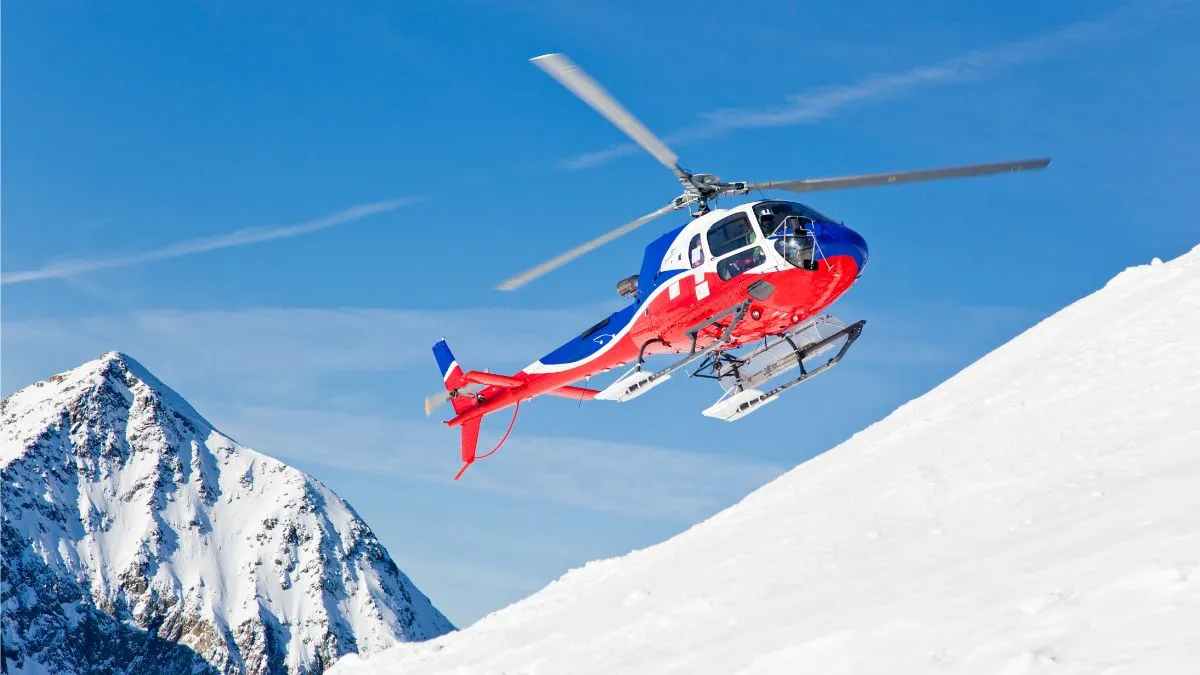
Experience breathtaking views of the Annapurna range on a thrilling helicopter trek.
Annapurna Helicopter Tour
Max Elevation
up to 4,100 to 4,300 m for Annapurna Base Camp, 3,760 to 3,800 m for Muktinath
Typical Trip Duration
single day trip (2 to 6 hours total) and multi day trip itinerar (2 to 6 days)
Flight Times
Pokhara to Annapurna Base Camp 20 to 60 minutes each way & Pokhara to Muktinath back & forth 40 to 60 minutes each way
Permits
ACAP (Annapurna Conservation Area Permit) commonly required for landings inside the conservation area, operators often arrange these. Rules about TIMS cards and guide requirements have evolved, guided agency bookings are the norm for protected areas.
Best Seasons
Sept to Nov & Mar to May for clearest flying, weather windows still matter, mornings usually most stable
Typical Capacity
Small charter choppers usually 4 to 6 passengers
Overview
An Annapurna Helicopter trip turns days of walking into hours of wide-angle perspective. Instead of following the trail step by step, you’ll ride the air above the landscape, terraced foothills, deep gorges, pine forests and the stark rain shadow of Mustang can all be sampled in a single outing. Helicopters are used in three main ways here: short scenic landings (Annapurna Base Camp), pilgrimage flights (Muktinath) and heli-assisted circuits where walkers fly past long road sections, land for short treks or skip the lowest or dustiest road approaches.
Most operators handle their departures out of Pokhara and Kathmandu. It is mostly for the longer charter flights. The landing sites commonly used are Annapurna Base Camp, Tilicho Lake, High Camp, Muktinath and designated high-altitude grounds near Manang or Chame. However, exact landing decisions are weather, load and safety dependent. Flight plans and permits are normally arranged by your operator.
Highlights of the Annapurna Helicopter Tour
Thorong La: People still talk about flying into the Thorong La corridor from the air. You get this amazing view of the whole ridgeline and all those passes. Not many trekkers see it that way.
Annapurna Base Camp: There are the landings right at Annapurna Base Camp. You step off onto the that meadow nearby. Its just a quick stop, like 20 to 45 minutes. Plenty of time for photos. The view of Annapurna I is up close and its dizzying. That cirque below really hits you.
Muktinath: The flight to Muktinath works great for pilgrims. You zip in fast and respectful. No need for the long hike down or up. Folks love it, families especially or anyone on a shorter trip.
Circuit: For the heli-assisted Circuit, you mix in some short treks. Like those acclimatization walks around Manang or the sunrise at Poon Hill. Helicopter transfers handle the rest. Skips those long road days. Gets you to high camps without the hassle. Comfortable all the way.
Itinerary
Day 1: Kathmandu -> Pokhara -> Chame
3540mDrive to Pokhara, briefing, fly to Chame or Manang to start higher on the route.
Day 2: Manang
3540mTrek short sectors, acclimatize and enjoy local villages.
Day 3: Manang
3540mTrek short sectors, acclimatize and enjoy local villages.
Day 4: Pokhara/Kathmandu
1400mHelicopter pickup at scheduled pad and transfer to Pokhara or Kathmandu.
Cost Breakdown
| Item | Budget Price | Mid Range Price | Luxury Price |
|---|---|---|---|
| Helicopter scenic landing (ABC) | $300-$700 (shared seat, seasonal) | $800-$1,500 (smaller groups) | $2,000-$4,000+ (private chopper/charter) |
| Muktinath day tour (Pokhara launch) | $350-$800 per person (group/shared) | $900-$1,800 | $2,000-$5,000+ |
| Heli-assisted multi-day package | $800-$2,000 | $2,000-$5,000 | Custom pricing |
Note: TIMS and ACAP are priced in NPR and fluctuate slightly in USD; current references show TIMS NPR 2,000/1,000 (non-SAARC/SAARC) and ACAP NPR 3,000/1,000 (non-SAARC/SAARC).
Trip Map
No map available
Compliance
ACAP (Annapurna Conservation Area Permit)
Most Annapurna helicopter tours that land inside the conservation area list ACAP as required and include it in the package. Operators will normally arrange it.
TIMS & Trekker cards
TIMS usage and administration have changed in recent years. Some operators and sources say helicopter sightseeing landings are handled differently from full treks. When in doubt, rely on your operator for accurate current requirements because enforcement and paperwork vary
Guide rule (foreign trekkers)
Since April 1, 2023, Nepal has tightened rules around independent trekking in protected regions. Hiring licensed guides or booking through agencies is widely required for trekking in conservation and national park zones. Helicopter sightseeing that only lands briefly can be administratively different, but most reputable operators require bookings through agencies and provide a guide for any ground visit.
Morning weather windows
Mountain thermals make mornings the most reliable for high-altitude flying.
Weight & load limits
Aircraft weight limits can reduce the allowable passenger count. Operators will request accurate passenger weights and luggage allowances.
Insurance
Ensure your travel insurance explicitly covers helicopter evacuation and high-altitude activity if you want medevac coverage. Operator charters usually request proof.
Comfort & acclimatization
Helicopters remove long exposure to altitude, but short visits to high places still expose you to thin air. Don’t assume immunity, move slowly on the ground and hydrate.
Local arrangements
Most operators handle ground transport, permit paperwork and landing clearances, book with experienced operators that have recent high-altitude landing experience.
Packing
Fitness: Minimal. Annapurna Helicopter options are for travelers who want the view without long trekking demands. For any short high-altitude walk, a light level of fitness helps.
Essentials: warm layers, sun protection, good sunglasses, hat, small daypack, bottled water, camera. Pack light, weight restrictions are real.
Documents & money: Bring ID and confirm whether ACAP and any landing fees are included. Have some NPR for tips, minor purchases and donations at temples (Muktinath).
Connectivity, Money & Practicalities
Cash & cards: Pokhara and Kathmandu have ATMs and card facilities. Remote landing sites do not. Operators generally include transfers and handling.
SIM & coverage: Mobile coverage is intermittent in high valleys. You’ll have coverage mostly near towns.
Photography: Drones are heavily restricted in many high-value environmental and cultural areas. Check the operator and ACA rules before planning drone use.
Frequently Asked Questions
Find answers to common questions about our trips
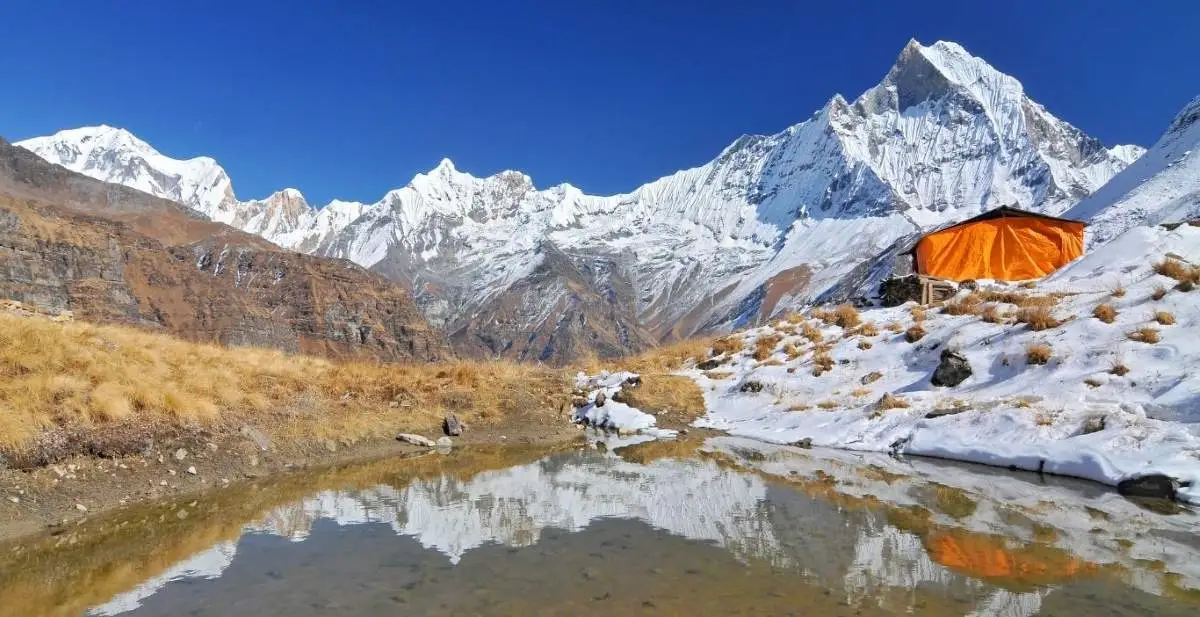
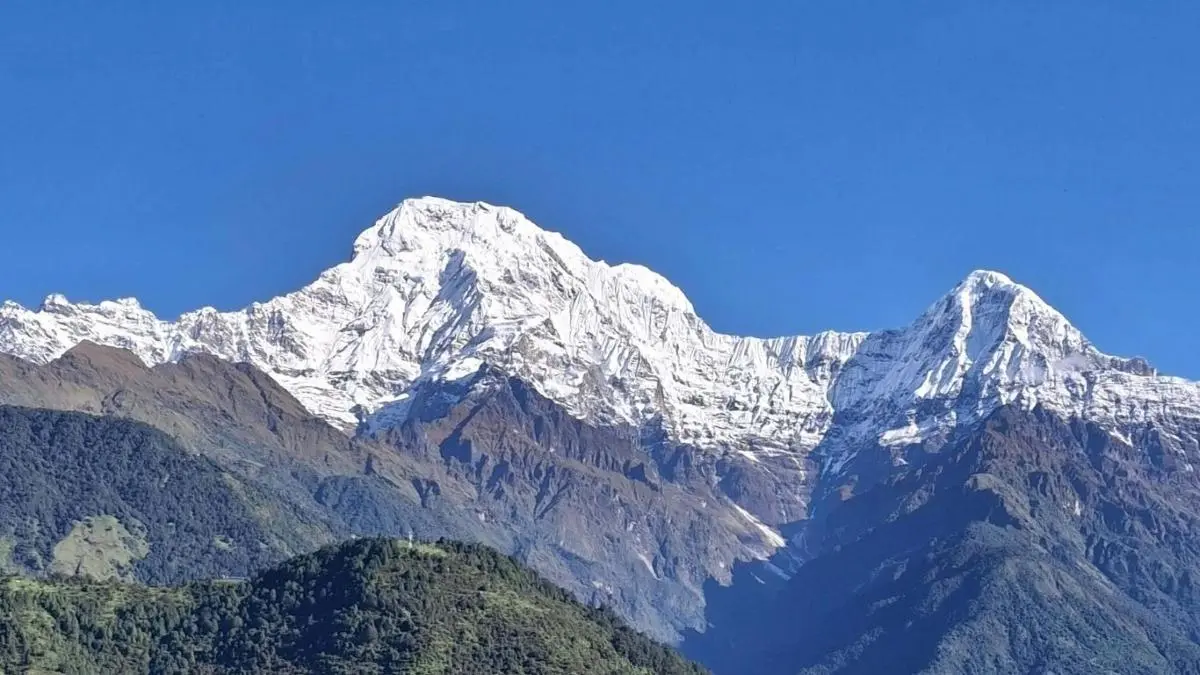
Related Trekking
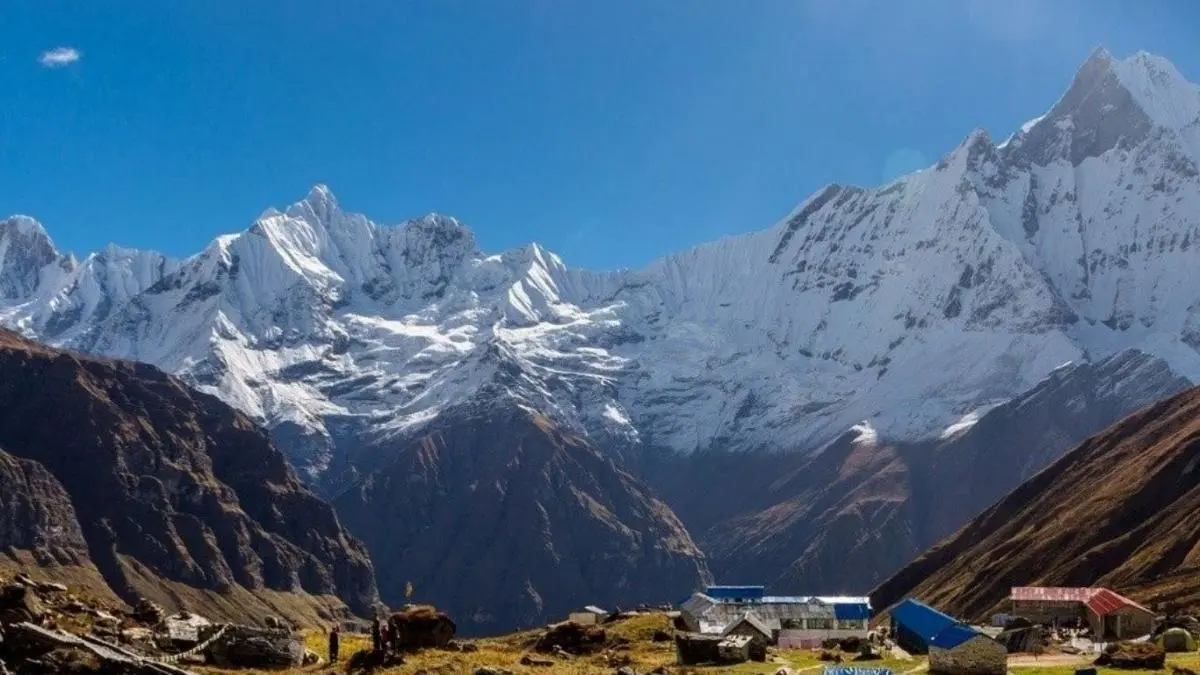
Annapurna Circuit Trek
Complete the classic Annapurna Circuit, crossing Thorong La Pass and experiencing diverse cultures and landscapes.
Explore →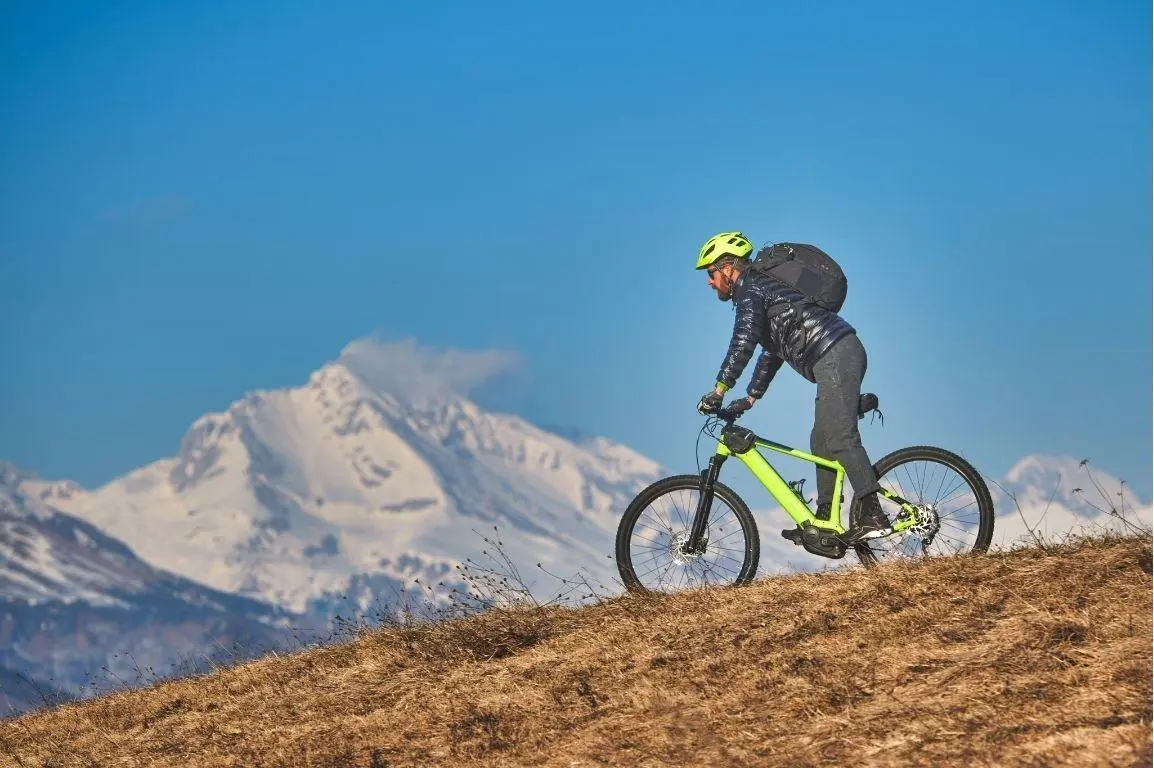
Annapurna Motorbike Adventure
Ride through stunning mountain roads and villages on an adventurous motorbike journey around the Annapurna region.
Explore →